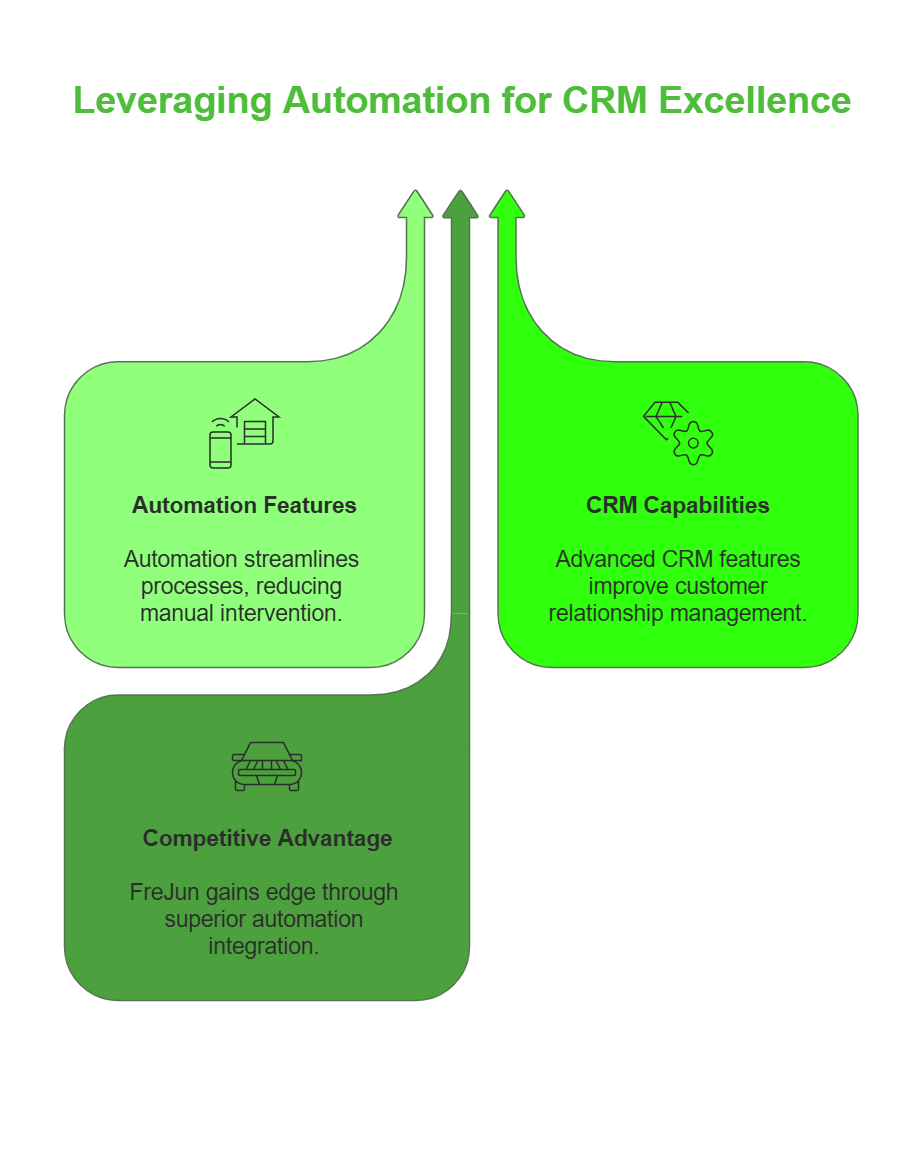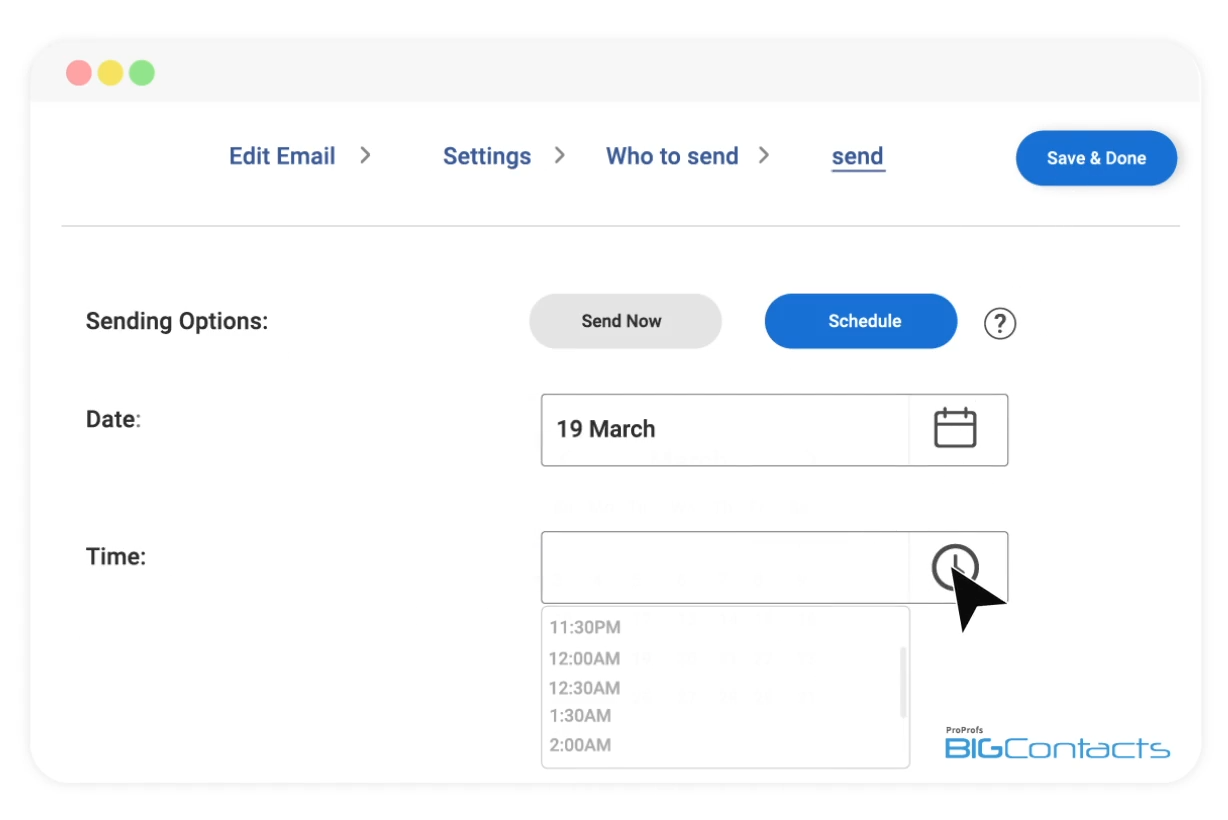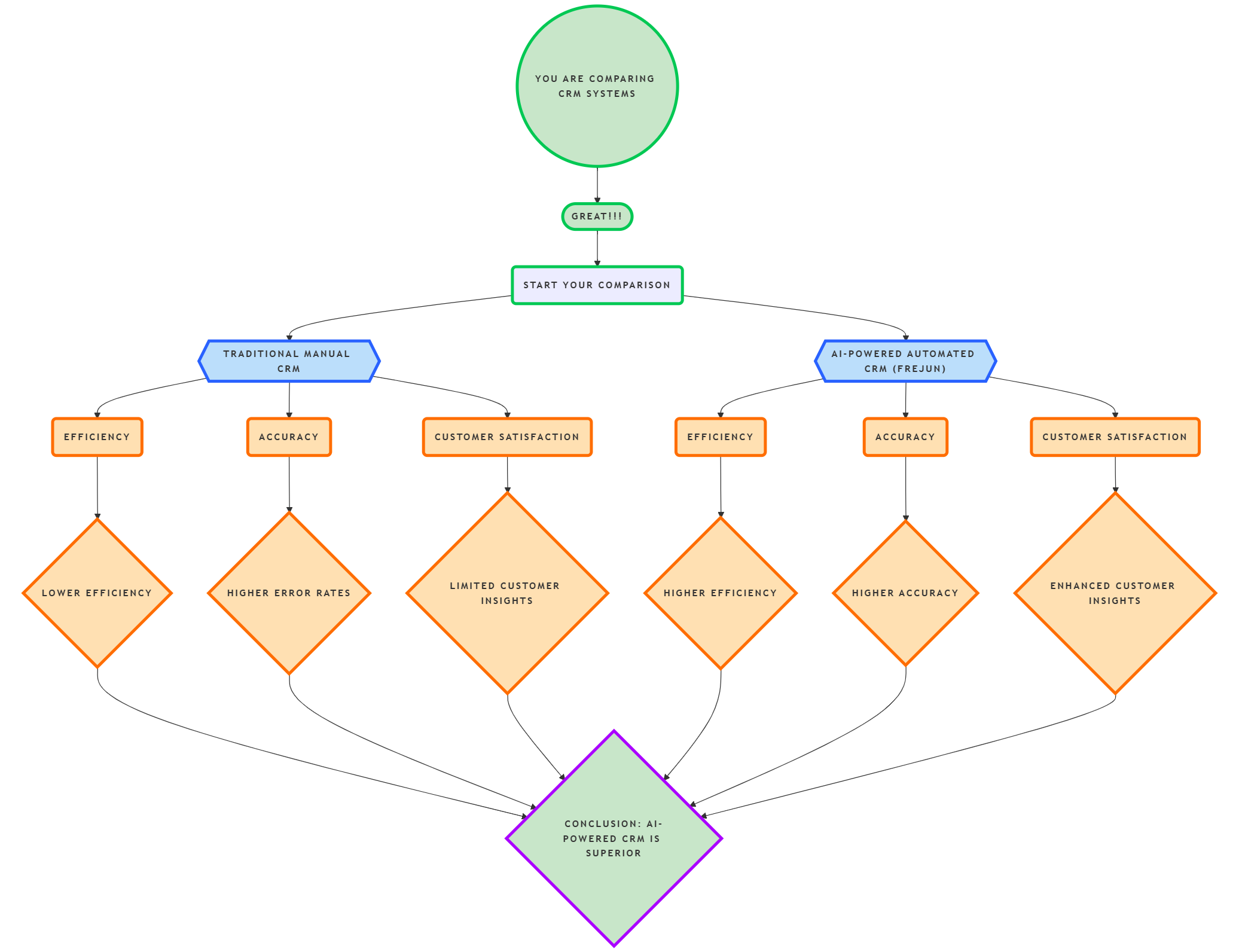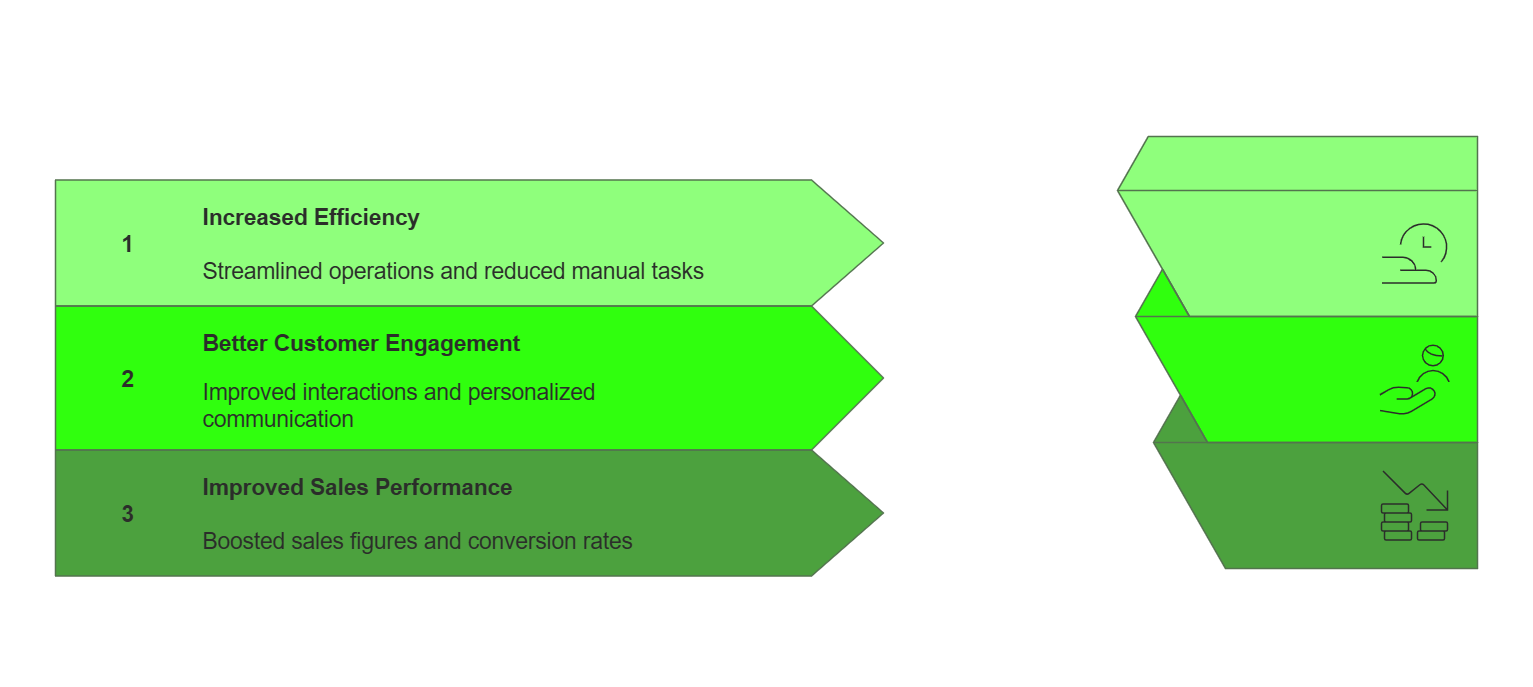Last updated on October 27th, 2025 at 05:35 pm
Remember the time you accidentally sent the wrong email to a customer? Or forgot following up with a hot lead? Yeah, we’ve all been there. But what if your CRM could prevent those moments and make you look like a rockstar instead? Enter CRM automation – your new secret weapon for flawless customer interactions. In fact, it’s not just about streamlining tasks it’s about creating a seamless, proactive experience that builds trust and drives growth. Wish to know more about automating customer interactions with CRM? Customer engagement is the backbone of business success, and in 2025, CRM automation is the game-changer in improving communication, streamlining processes, and enhancing customer interactions. With AI-driven tools like FreJun, businesses can automate customer relationship management (CRM) to create personalized, efficient, and impactful experiences.
Table of contents
- What’s the Role of Automation in Modern CRMs?
- Important Feature of CRM Automation
- CRM System Comparison
- How to Enhance Communication & Engagement Through CRM Automation?
- 1. Build Personalized Customer Profiles
- 2. Automate Timely and Relevant Messages
- 3. Segment Customers for Targeted Campaigns
- 4. Set Up Follow-Up Reminders Automatically
- 5. Analyze Customer Data for Insights
- 6. Enable Self-Service Options for Customers
- 7. Trigger Feedback Requests After Key Interactions
- 8. Use CRM-Driven Insights to Improve Customer Support
- 9. Reward Loyalty with Automated Incentives
- 10. Measure Engagement with Automated Reports
- Benefits of Automating Customer Interactions with CRM
- 1. Enhance Customer Satisfaction by Streamlining Responses
- 2. Increase Efficiency Through Task Automation
- 3. Improve Personalization at Scale
- 4. Nurture Leads and Boost Conversion Rates
- 5. Enhance Data Accuracy and Reduce Human Error
- 6. Empower Your Team with Better Customer Insights
- 7. Achieve Cost Savings with Fewer Manual Processes
- 8. Enhance Customer Retention Through Consistent Engagement
- Best Practices for Effective CRM Automation
- 1. Segment Precisely with Micro-Segmentation for Tailored Outreach
- 2. Trigger Feedback Loops at Key Customer Journey Milestones
- 3. Leverage Real-Time Behavior for Contextual Messaging
- 4. Use Dynamic Content in Emails and Landing Pages
- 5. Adopt Predictive Lead Scoring to Focus on High-Value Prospects
- 6. Automate Dormant User Re-engagement via Silence Detection
- 7. Use AI Sentiment Analysis for Smarter, Emotion-Based Responses
- 8. Clean CRM Data Automatically for Consistent, Accurate Reporting
- 9. Synchronize Across Channels for Cohesive Customer Touchpoints
- 10. Implement Conditional “If/Then” Testing for Real-Time Optimization
- Conclusion
- Frequently Asked Questions
What’s the Role of Automation in Modern CRMs?
Automation in modern customer relationship management (CRM) systems plays a crucial role in simplifying tasks that would be time-consuming or repetitive.

It automates everything, from sending follow-up emails to assigning tasks to sales teams, so employees can focus on building relationships rather than handling manual tasks.

In fact, 82% of the current organizations deploy CRM systems for sales reporting and process automation. No wonder it delivers great outcomes.
For instance, a retail company uses CRM automation to manage customer orders. When a customer places an order, the CRM automatically confirms it, updates inventory, notifies the warehouse team, and sends shipping information to the customer—all without manual input.
This seamless experience keeps their customers informed and ensures that the team can focus on delivering quality service without getting bogged down by routine updates.
Important Feature of CRM Automation
| Feature | Impact | FreJun’s Advantage |
| AI-Driven Personalization | Engages customers better | Smart CRM integration for tailored communication |
| Workflow Automation | Saves time and increases efficiency | Automates follow-ups and reminders |
| Real-Time Updates | Prevents miscommunication | Synchronizes customer data instantly |
| Lead Nurturing | Boosts conversion rates | AI-driven insights to enhance engagement |
CRM System Comparison

How to Enhance Communication & Engagement Through CRM Automation?
Here’s how you can use CRM automation to improve communication and engagement with your customers:
1. Build Personalized Customer Profiles
You can gather information on each customer, such as their purchase history, preferences, and interactions with your brand. This allows you to create detailed profiles, helping you better understand each customer and tailor communication to their specific needs.
2. Automate Timely and Relevant Messages
Automate messages triggered by specific events, such as a new signup, a recent purchase, or a milestone like a birthday. Sending relevant and timely messages keeps your brand in the customer’s mind without you having to reach out manually every time.
3. Segment Customers for Targeted Campaigns
Group customers into segments based on their interests, behavior, or purchase history. This allows you to send tailored campaigns to each group, increasing the chances they’ll find your messages relevant and engaging. By using an automated marketing CRM, you can streamline this process, ensuring each segment receives the right content at the right time.
4. Set Up Follow-Up Reminders Automatically
Schedule follow-ups with customers based on their activity or lack thereof. For instance, if a customer leaves items in their cart or hasn’t interacted with your brand for a while, a CRM reminder can help you follow up in a timely way, nudging them to take action.

5. Analyze Customer Data for Insights
Use CRM analytics to look at patterns in customer behavior, such as what types of content or products are most engaging. This data helps you understand what your audience values, allowing you to improve future communications and engagement strategies.
6. Enable Self-Service Options for Customers
Provide self-service options like FAQs, chatbots, or online portals. Automating these tools with CRM makes it easy for customers to get quick answers to common questions, freeing up your team to focus on more complex issues.
7. Trigger Feedback Requests After Key Interactions
Automatically send feedback requests after major touchpoints, such as a completed purchase or a support call with the help of a good call automation platform like FreJun. This lets customers share their thoughts on their experience and shows them that their opinions matter to your brand.
8. Use CRM-Driven Insights to Improve Customer Support
Equip your support team with CRM insights to better address each customer’s needs. With access to a customer’s history and preferences, support agents can resolve issues more efficiently and provide a more personalized experience.
9. Reward Loyalty with Automated Incentives
Set up automated rewards, like discount codes or exclusive offers, for loyal customers. By recognizing their loyalty through automated marketing CRM tools, you increase their engagement and make them feel valued, encouraging them to return.
10. Measure Engagement with Automated Reports
Generate regular reports on customer engagement, tracking metrics like email open rates, click-through rates, and response times. These reports help you assess what’s working and where you can improve, making it easier to refine your CRM marketing automation strategy. With consistent analysis, you’ll gain insights to optimize future interactions and drive meaningful connections with your audience.
Benefits of Automating Customer Interactions with CRM

Here are some of the major CRM automation benefits for businesses:
1. Enhance Customer Satisfaction by Streamlining Responses
Automated responses ensure that customers receive quick replies, no matter the time or day. This reduces wait times and boosts customer satisfaction by addressing concerns promptly.
2. Increase Efficiency Through Task Automation
Automating repetitive tasks such as data entry, follow-up reminders, and lead scoring helps unlock the true CRM automation benefits, allowing your team to allocate more time to strategic, high-priority activities, which ultimately boosts overall efficiency.
3. Improve Personalization at Scale
Automation helps gather and analyze customer data so your CRM can send personalized messages based on individual preferences. This makes customers feel valued and understood, fostering loyalty.
4. Nurture Leads and Boost Conversion Rates
Automated systems can follow up with leads through emails or messages at key times, increasing the chances they become customers. By incorporating CRM workflow automation, businesses can ensure this timely engagement, helping to move leads smoothly through the sales funnel.
5. Enhance Data Accuracy and Reduce Human Error
Automated CRM systems reduce errors in data entry, updating customer information accurately and consistently. This gives you reliable data for better decision-making and planning.
6. Empower Your Team with Better Customer Insights
Automated CRM systems collect and organize customer data to provide a 360-degree view of each customer. This gives your team valuable insights, enabling them to offer more relevant solutions and better service. Integrating an automated marketing CRM allows your team to gain even deeper insights, allowing for more personalized and effective customer interactions.

7. Achieve Cost Savings with Fewer Manual Processes
By automating interactions, you reduce the need for repetitive, manual work, which lowers operational costs. This is especially helpful for businesses looking to scale without increasing headcount.
8. Enhance Customer Retention Through Consistent Engagement
Automated reminders and follow-ups help you stay in touch with customers, encouraging them to return or make additional purchases. Consistent, proactive engagement fosters long-term customer relationships.
Best Practices for Effective CRM Automation
Here are some advanced tips to ensure effective CRM automation that helps you achieve true optimization and personalization:
1. Segment Precisely with Micro-Segmentation for Tailored Outreach
Go beyond demographics with micro-segmentation to understand customer motivations. Group users by specific behaviors (e.g., frequent buyers) and personalize outreach for maximized relevance and impact.
2. Trigger Feedback Loops at Key Customer Journey Milestones
Automate feedback collection after critical journey moments, like onboarding or post-purchase. This captures valuable insights when experiences are fresh, yielding more accurate, actionable feedback.
3. Leverage Real-Time Behavior for Contextual Messaging
Utilize behavior-based triggers for instant outreach, like offering a discount if a user lingers on a product page without purchasing. It engages customers when interest is highest.
4. Use Dynamic Content in Emails and Landing Pages
Tailor content by inserting real-time data like recent interactions or wishlist items. Personalized recommendations make emails and pages feel relevant, boosting engagement and conversion rates. For visual campaigns, create image variations based on user preferences or past interactions to personalize content and enhance visual appeal.
5. Adopt Predictive Lead Scoring to Focus on High-Value Prospects
Move beyond static lead scoring with predictive analytics that dynamically updates based on customer interactions, helping sales prioritize the most conversion-ready leads.
6. Automate Dormant User Re-engagement via Silence Detection
Track users who go silent and trigger personalized re-engagement messages. Custom incentives or content often rekindle interest before users are lost for good.
7. Use AI Sentiment Analysis for Smarter, Emotion-Based Responses
Automate responses based on customer sentiment in messages or social posts. Positive feedback can prompt upsells, while negative tones trigger support responses, improving satisfaction and retention.
8. Clean CRM Data Automatically for Consistent, Accurate Reporting
Automate data-cleaning workflows to remove duplicates, update outdated entries, and enrich incomplete profiles. Accurate data means reliable insights for smarter decisions and streamlined operations. By integrating CRM workflow automation, you ensure that data remains clean and up-to-date, supporting more efficient processes and insightful decision-making.

9. Synchronize Across Channels for Cohesive Customer Touchpoints
Connect CRM automation with SMS, social media, and chat to provide consistent messaging. Cross-channel synchronization creates a seamless experience, respecting user engagement preferences.
10. Implement Conditional “If/Then” Testing for Real-Time Optimization
Design dynamic “If/Then” scenarios to test real-time customer responses. If one approach doesn’t work, trigger alternative messaging, enabling fast adjustments based on behavior insights.
Conclusion
In the current swiftly moving market, CRM automation isn’t just a luxury it’s necessary for any business looking to deepen customer relationships. By streamlining communication and engagement efforts, CRM tools enhance personalization and boost efficiency, which leads to higher customer satisfaction.
You can use a good CRM tool like BigContacts and FreJun, which offers powerful automation features to simplify tracking and managing customer interactions and ensure that no opportunity slips through the cracks.
CRM automation is the future of business communication. With tools like FreJun, businesses can optimize their CRM strategies, ensuring personalized interactions, improved efficiency, and higher conversion rates. Embrace the power of automation in 2025 to stay ahead of the competition!
Further Reading: Be a Successful TSR with the 3C’s of Communication
Frequently Asked Questions
CRM automation is used to streamline tasks like emails, call logging, follow-ups, and data updates FreJun adds call automation to this mix.
It ensures timely, consistent, and personalized communication. FreJun supports this by automating call workflows.
Yes, automation significantly reduces repetitive work. FreJun handles all call-related updates automatically.
Emails, SMS, calls, and reminders can all be automated FreJun specializes in automating business calls.
Yes, tools like FreJun ensure instant data syncing and call tracking in real time.
Absolutely. With FreJun, follow-up calls can be auto-scheduled and logged.
Yes, it’s scalable. FreJun offers flexible plans tailored for startups and growing teams.
